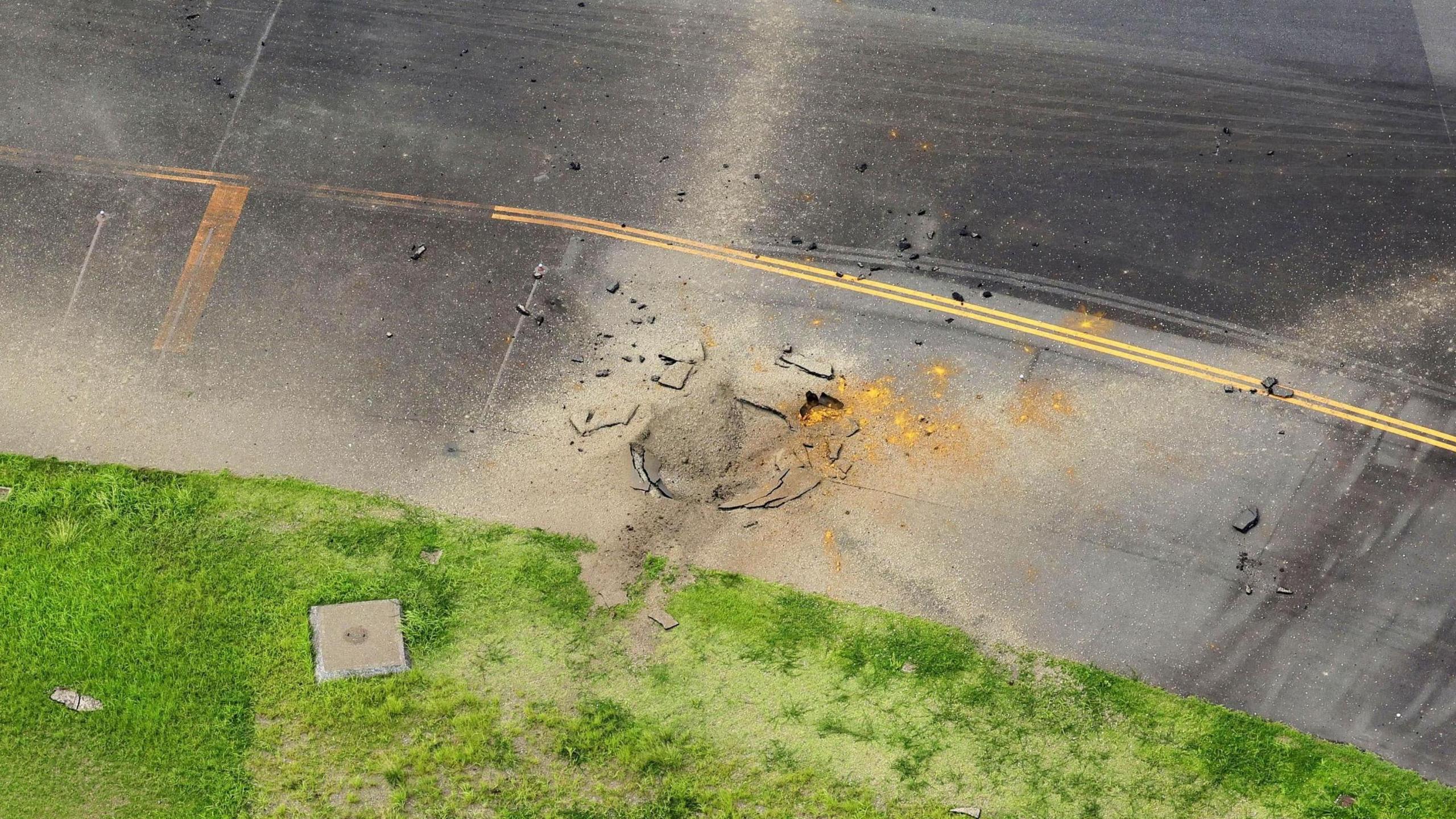Blast from unexploded US bomb grounds flights at Japanese airport

The blast left a crater near a runway at the airport
- Published
A US bomb buried at a Japanese airport exploded on Wednesday, causing a crater in a taxiway and the cancellation of more than 80 flights.
The minor blast left a hole about seven meters (23 feet) wide but no casualties were reported and no aircraft were nearby at the time.
The bomb, which exploded at Miyazaki Airport in south-west Japan, is thought to have been dropped during World War Two to stem "kamikaze" planes on suicide missions.
"There is no threat of a second explosion, and police and firefighters are currently examining the scene," chief cabinet secretary Yoshimasa Hayashi said, adding that the airport aimed to reopen on Thursday.
A bomb disposal team from Japan's Self-Defense Forces confirmed a 500lb US bomb had been the source of the blast.
While a transport minister said they could not confirm when the bomb was dropped, local media reported it was likely during World War Two.
Located at the south-east end of Kyushu island, Miyazaki Airport was built in 1943 as an imperial Japanese navy base.
Other unexploded ordinance dropped by the US was reportedly found at a nearby construction site in 2009 and 2011.
Unexploded bombs remain buried around the country. Reuters news agency said a total of 2,348 bombs weighing 41 tonnes were disposed of during 2023.